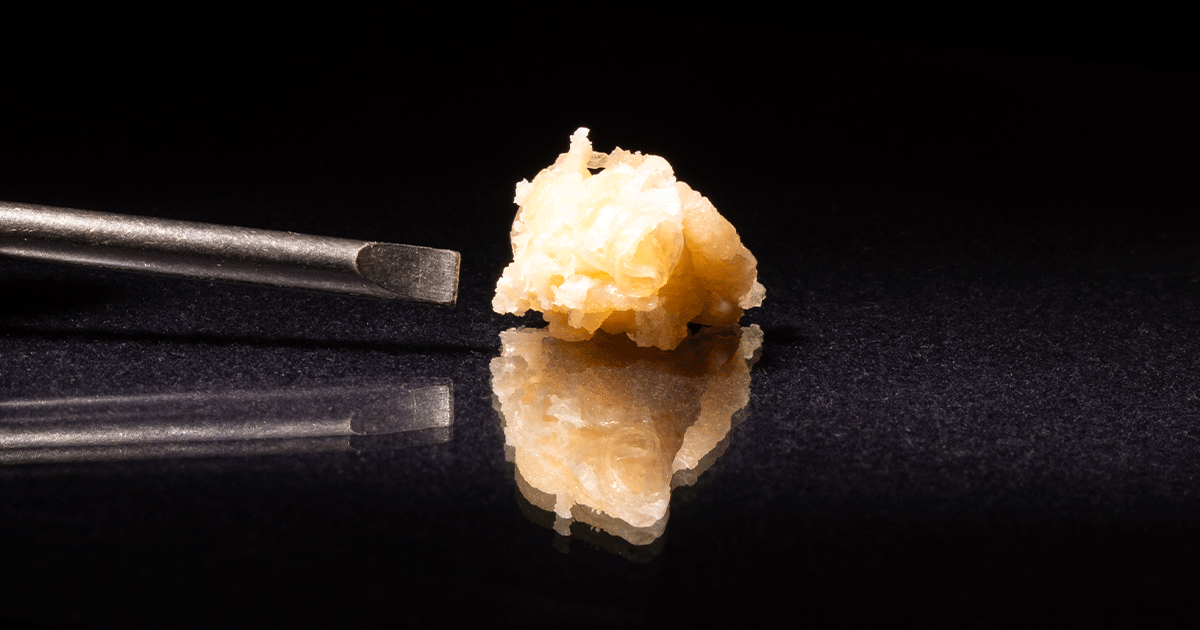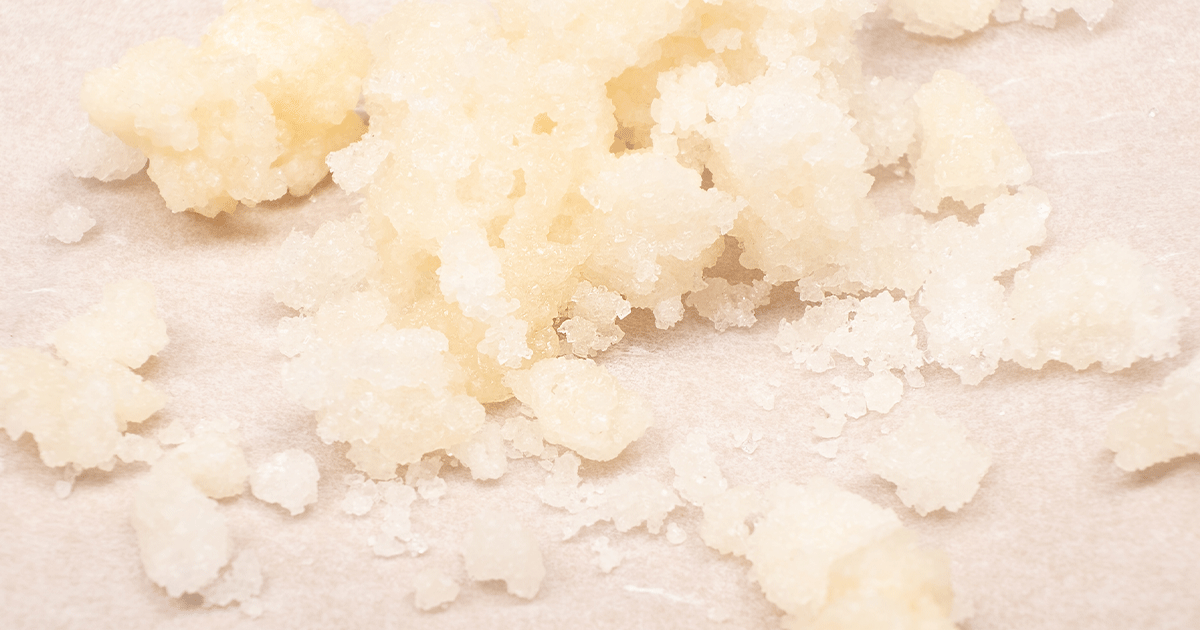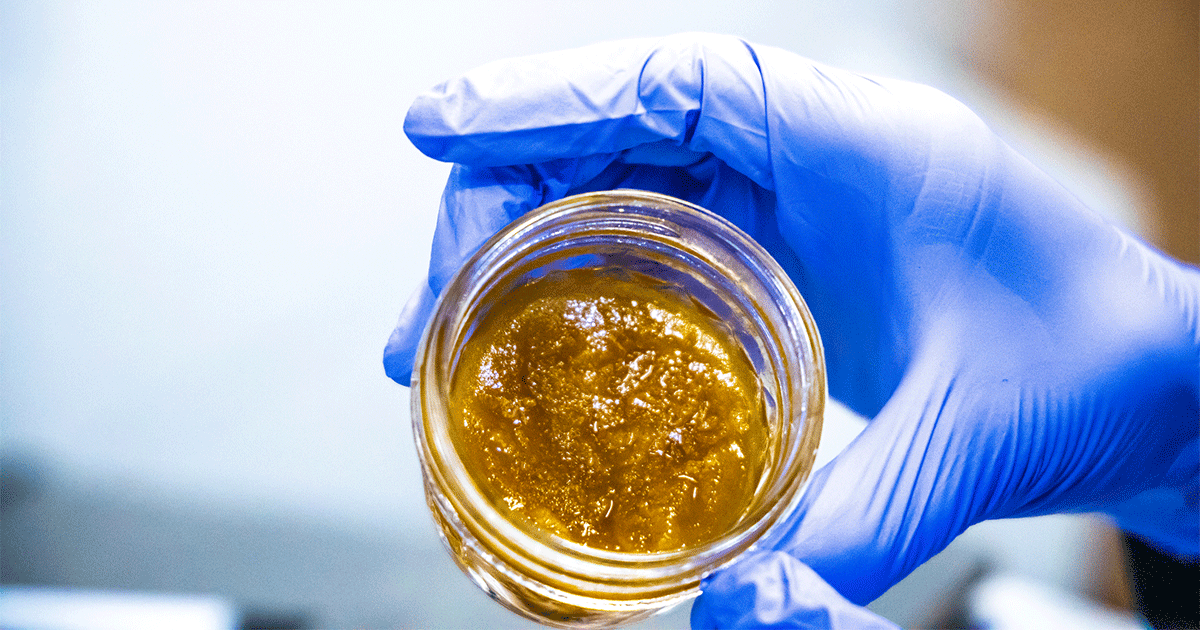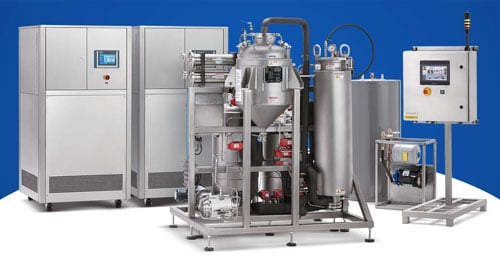
Cannabis extraction methods have come a long way from their dangerous, open-blasting roots. Modern cannabis processors have a wide range of safe and efficient ways to extract the plant’s essential oils from its inactive plant material. Ultimately, the right extraction method depends on a company’s budget and desired products.
Propane and butane are two of the most cost-effective organic solvents used to create high-quality cannabis concentrates and concentrate-based products. While CO2, ethanol, and other solvents offer numerous advantages in extraction, light hydrocarbons like butane and propane are the only solvents that can produce full-spectrum products with all of the plant’s active ingredients. Propane stands out as the best hydrocarbon for recovering the most terpenes from the plant with the least amount of impurities.
What Are Light Hydrocarbons?
Butane and propane are known as light hydrocarbons due to their low molecular weight. Hydrocarbons include butane, propane, pentane, ethane, and light and heavy naphtha. They are naturally-occurring oils composed of carbon and hydrogen atoms.
Butane and propane have been used as extraction solvents in a wide range of commercial activities, including creating essential oils, food flavorings, forestry products, vegetable oils, and other foods. Propane has also been used to recycle used lubricant oils.
Propane and butane are commonly used in the cannabis extraction process due to their lower boiling points than other solvents like ethanol. Propane and butane can be used alone as solvents or as a solvent blend, depending on the desired end product. Higher propane levels can increase the terpene yield. Light hydrocarbons can produce safe and potent cannabis concentrates like propane hash oil.
What Is Propane Hash Oil?
Propane hash oil (PHO) is a cannabis concentrate made using propane as a solvent in a closed-loop extraction system. Butane hash oil, also known as butane honey oil (BHO), is a similar type of concentrate that uses butane as a solvent instead of propane. In the cannabis industry, the butane extraction process is more commonly used than propane extraction.
PHO concentrates have THC potency levels between 70% and 90% and usually have a lighter yellow color than the darker amber hue of BHO extracts. PHO concentrates can be vaporized in a dab rig or vape pen and be made into an array of products, including vape cartridges, infused pre-rolls, moon rocks, edibles, and topicals.
What Is Propane Hash Oil Extraction?

PHO extraction is one of the best methods for separating the cannabis plant’s cannabinoids and terpenes from undesirable matter. Propane is affirmed Generally Recognized as Safe (GRAS) and has a low toxicity rate, making it an optimal solvent for extracting a high yield of cannabis compounds.
Propane extraction usually occurs at relatively low temperatures and high pressures compared to butane extraction. Propane has a low boiling point compared to butane. Lower temperatures and higher pressures ensure more of the plant’s valuable essential oils are preserved, and other impurities are left behind.
Like other extraction methods, propane hash oil extraction occurs in a closed-loop extraction system. During the primary extraction run, the propane is introduced into a vessel containing the cannabis plant material, also known as biomass. As the propane washes over the biomass, it strips the cannabinoids, terpenes, and flavonoids.
Because propane is non-polar, the solvent does not extract undesirable compounds (polar solutes) like chlorophyll which can create a darker and harsher-tasting oil. Sub-critical propane extractions can even leave fats and waxes in the biomass without requiring remediation after.
After the extraction run removes the cannabinoid and terpene oil, the residual solvent can be removed through a gentle heating process in a vacuum oven. Propane’s boiling point is lower than butane, making it easier to remove from the final product.
One of the downsides of propane is its high flammability and explosive nature. Safe propane extractions should only occur in professionally engineered equipment and facilities that have been approved by all authorities having jurisdiction.
Propane Hash Oil vs. Butane Hash Oil: What Is the Difference?
What is the difference between propane hash oil and butane hash oil extractions and products? The difference in their production methods and resulting products is due to each hydrocarbon’s boiling point. While both have lower boiling points than other solvents, propane has a lower boiling point than butane, allowing it to produce terpene-rich products.
- Propane boiling point: -43.6º F
- Butane boiling point: 31.1º F
Lower boiling points during cannabis extraction can help preserve the terpenes and affect the consistency of the concentrate. Low temperatures during extraction and post-processing reduce the risk of terpene degradation. Terpenes have a lower boiling point than cannabinoids.
Due to its high terpene content, PHO usually has the soft and malleable consistency of budder extracts. Terpenes have a liquid consistency compared to solid cannabinoid crystals. BHO has a hard and brittle consistency found in shatter extracts.
Propane extractions remove fewer fats and lipids and preserve more terpenes compared to butane. Butane extracts a higher yield of cannabinoids. As a result, butane can produce a more stable product (shatter) compared to unstable propane products (sugar).
Butane and Propane Solvent Blends
Many cannabis processors use butane and propane blends to improve extraction efficiency. Blending butane and propane creates an azeotropic mixture, making the boiling point of the solvent blend a happy medium of the two solvents.
When hydrocarbon solvent blends are used, operators may use slightly higher pressures than when using 100% butane as a solvent. Many processors choose either a 70% butane and 30% propane blend or a 50/50 blend.
100% Propane for High-Terpene Full-Spectrum Extractions

High-terpene full-spectrum extracts (HTFSE) refer to cannabis concentrates containing an entire spectrum of compounds, including cannabinoids, terpenes, and flavonoids. HTFSE has a saucier consistency than extracts with low terpene levels.
Consumers are increasingly understanding the importance of every active ingredient in the cannabis plant. Research suggests that the interaction between compounds like terpenes and minor cannabinoids (CBG, CBN, CBC, etc.) with major cannabinoids like THC and CBD improves health benefits and reduces adverse effects.
As the interest in “the entourage effect” grows among consumers, the need for HTFSE will continue to grow. Pure propane extraction runs may help processors extract more of the plant’s valuable terpenes to produce terp-heavy extracts.
Elevate Your Cannabis Extractions with Luna Technologies
Hydrocarbon extraction systems offer versatility, affordability, and high throughputs to small and large-scale producers. Streamline your cannabis operations with a fully automated system capable of handling butane and propane blends with ease.
Luna Technologies’s fully automated IO and Oberon extractors are rated for propane use and able to handle the necessary higher pressures without a problem. Every component in the closed-loop system, including the hoses, fittings, valves, and sight glasses, is compatible with propane hash oil extraction.
Best of all, industry-leading cooling and complete automation in Luna’s BHO systems allow processors to capture even more of the plant’s terpenes than ever before. As the future of cannabis calls for full-spectrum products, producers will need to invest in cutting-edge propane hash oil technology.


